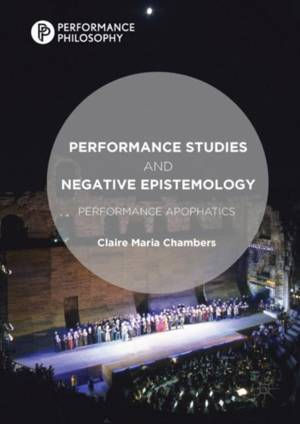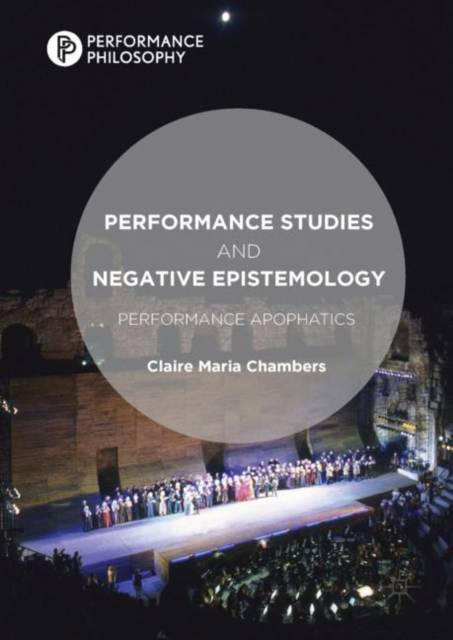
Je cadeautjes zeker op tijd in huis hebben voor de feestdagen? Kom langs in onze winkels en vind het perfecte geschenk!
- Afhalen na 1 uur in een winkel met voorraad
- Gratis thuislevering in België vanaf € 30
- Ruim aanbod met 7 miljoen producten
Je cadeautjes zeker op tijd in huis hebben voor de feestdagen? Kom langs in onze winkels en vind het perfecte geschenk!
- Afhalen na 1 uur in een winkel met voorraad
- Gratis thuislevering in België vanaf € 30
- Ruim aanbod met 7 miljoen producten
Zoeken
€ 167,95
+ 335 punten
Omschrijving
This book explores the intersection between apophaticism - negative theology - and performance. While apophaticism in literature and critical theory may have had its heyday in the heady debates about negative theology and deconstruction in the 1990s, negative ways of knowing and speaking have continued to structure conversations in theatre and performance studies around issues of embodiment, the non- and post-human, objects, archives, the ethics of otherness in intercultural research, and the unreadable and inaccessible in the work of minority artists. A great part of the history of apophaticism lies in mystic literature. With the rise of the New Age movement, which claimed historical mysticism as part of its genealogy, apophaticism has often been sidelined as spirituality rather than serious study.
This book argues that the apophatic continues to exert a strong influence on the discourse and culture of Western literature and especially performance, and that by reassessing this ancient form of negative epistemology, artists, scholars, students, and teachers alike can more deeply engage forms of unknowing through what cannot be said and cannot be represented in language, on the stage, and in every aspect of social life.
This book argues that the apophatic continues to exert a strong influence on the discourse and culture of Western literature and especially performance, and that by reassessing this ancient form of negative epistemology, artists, scholars, students, and teachers alike can more deeply engage forms of unknowing through what cannot be said and cannot be represented in language, on the stage, and in every aspect of social life.
Specificaties
Betrokkenen
- Auteur(s):
- Uitgeverij:
Inhoud
- Aantal bladzijden:
- 301
- Taal:
- Engels
- Reeks:
Eigenschappen
- Productcode (EAN):
- 9781137520432
- Verschijningsdatum:
- 24/10/2017
- Uitvoering:
- Hardcover
- Formaat:
- Genaaid
- Afmetingen:
- 148 mm x 210 mm
- Gewicht:
- 526 g

Alleen bij Standaard Boekhandel
+ 335 punten op je klantenkaart van Standaard Boekhandel
Beoordelingen
We publiceren alleen reviews die voldoen aan de voorwaarden voor reviews. Bekijk onze voorwaarden voor reviews.









